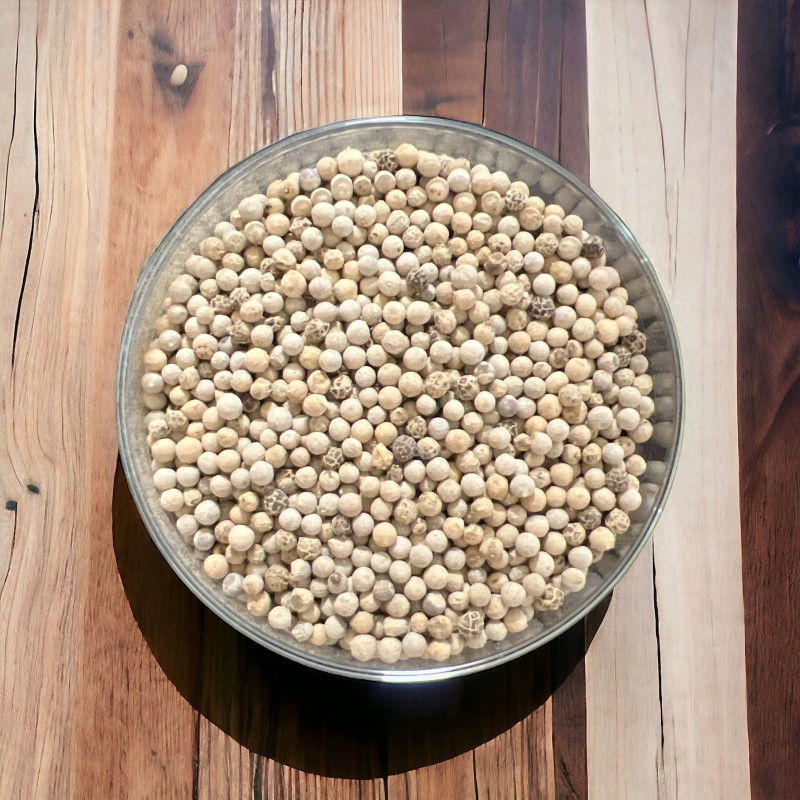


Rich in aromas, this pepper is to be ground over all dishes for its flavor and intensity!
It is particularly appreciated by those who prefer pepper that doesn't leave visible traces in their dishes.
 Delivery
Delivery
Mondial Relay
 Returns
Returns
See conditions
 Payments
Payments
100% secure
Livré en sachet refermable
Uses in Cooking:
This white pepper is well-scented, without the unpleasant odor often associated with white peppers. It is also less pungent than black peppers, as the skin responsible for some of the spiciness in black pepper is removed.
It will happily flavor all your dishes and has the advantage over other "colored" peppers of not leaving colored specks in your dishes, especially in white sauces.
Who am I?
Origin: Vietnam
Scientific name: Piper nigrum
The pepper plant (Piper nigrum) produces, in order of maturity: first green peppercorns, then later black peppercorns, and finally, white peppercorns. The latter consists of fully ripened berries that are soaked to remove their skin and then dried until they turn white.
Originally, pepper plants grew in India, with cultivation beginning on the west coast, particularly in the Malabar region of Kerala. From there, it spread to other countries: Southeast Asia (Indonesia and Malaysia), Madagascar, and Brazil. Recently, Vietnam has become the largest global producer of pepper.
Technically, the name "pepper" should only refer to the fruits of Piper nigrum, which produces the traditional peppers (black, white, and green), Piper cubeba (cubeb pepper), and Piper longum (long pepper). However, in common usage, the term "pepper" is also applied to several other berries unrelated to true peppers, such as Sichuan pepper.
Pepper owes its spiciness to amides of piperine.
A Little History:
In Greece, under Alexander the Great, pepper was already in use, as it was among the Romans in antiquity.
Due to their high price, pepper and other rare spices were used as currency after the Arab conquest of Alexandria in 642 CE. This is where the term "to pay in cash" (derived from the word "spices") comes from!
The exorbitant price of pepper during the Middle Ages and Italy’s monopoly on its trade were among the reasons that motivated the Portuguese to find a sea route to India. After Vasco da Gama discovered this route in 1498, a treaty was signed granting the Portuguese exclusive rights to half the world, including black pepper. A century later, they lost this monopoly to the Dutch (with their East India Company) and the English.
Data sheet
Specific References
Reference: SriLankaBlanc
Reference: poivreEbiosaotome
Reference: 6N745801
Reference: poivreNEmada
Reference: poivresichuanE
Reference: 2N70996502
Reference: 208029701
Reference: poivrenoirconc
Reference: baieroseE
Reference: Kubebe
Reference: Graineparadis
Reference: poivrevoatsE
Reference: 10N7699901
Reference: SriLankaBlanc
Reference: 2M6273801
Reference: 1N7049301

Rich in aromas, this pepper is to be ground over all dishes for its flavor and intensity!
It is particularly appreciated by those who prefer pepper that doesn't leave visible traces in their dishes.